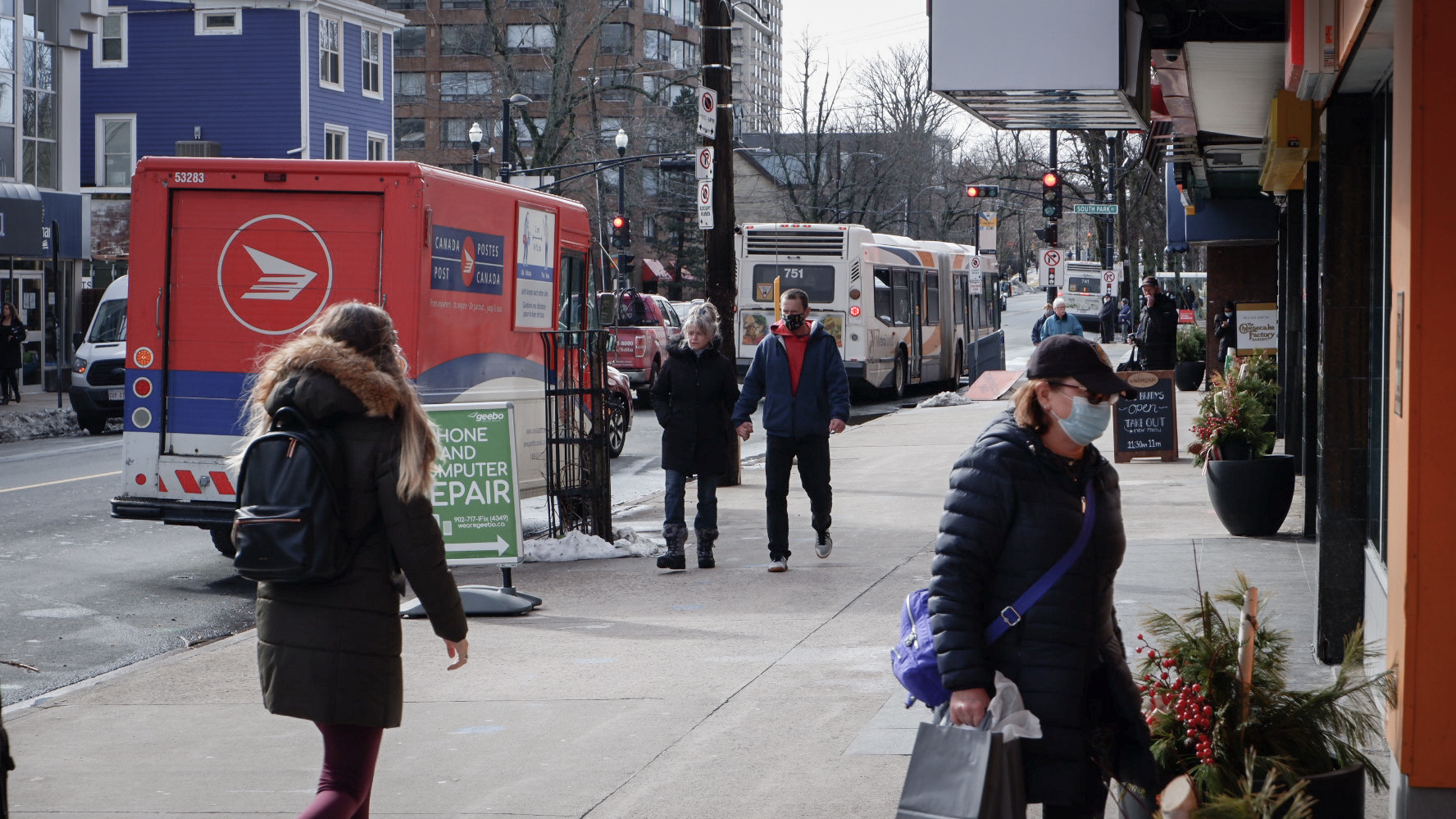Nova Scotia to begin community vaccination this month
Dr. Strang says age-based approach is the quickest way for everyone to get vaccinated

caption
People walk down Spring Garden, one of Halifax's busiest streets. Businesses are operating on reduced capacity, and patrons must wear masks.The first community vaccination clinic will offer services to people over the age of 80, chief medical officer of health Dr. Robert Strang said Wednesday.
He said Nova Scotians will be vaccinated in descending five-year age groups. The next group will be people aged 75-79, and so on. Strang said that an age-based approach would be the most efficient way to vaccinate the most vulnerable people first, and eventually the whole province.
The first clinic will be held at the IWK Health Centre in Halifax from Feb. 22 to Feb. 25. It will include “a few hundred, maybe in the range of 300 to 400 people,” Strang said during a media briefing.
“We’re calling it our prototype. But we will learn from that and when we’re able to have more of these clinics and sustain them, we’ll have more effective, efficient clinics.” Related stories
Eligible Nova Scotians will be contacted via mail to schedule an appointment.
Strang said that he expects to have nine other community-based clinics open across the province in March.
The first health-care provider-based clinic will also go up in March, with more to follow when the vaccine supply improves in late April or May, Strang said. In these clinics, physicians and pharmacists will be able to administer vaccines.
Strang said the government is working closely with high-risk First Nations and African Nova Scotian communities to set up prototype vaccination clinics in their respective neighbourhoods. The federal government has recommended that certain marginalized communities receive vaccination priority.
Strang also identified groups who will receive vaccinations in Phase 2 of the rollout. These groups include:
- Anyone who works in a hospital and may have direct contact with patients,
- Community-based health-care providers including doctors, nurses, dentists, etc.,
- People who live in congregate or group-living settings such as correctional facilities, shelters and temporary foreign workers,
- People who regularly travel in and out of the province for work, excluding New Brunswick,
- People at specific work sites that cannot maintain public health protocols such as food processing facilities.
We are currently in Phase 1 of the vaccine rollout. People living and working in long-term care homes or Department of Community Services facilities are being vaccinated, as are health-care workers who work directly with patients.
As of Wednesday, almost 16,000 doses of the vaccine have been administered in Nova Scotia. Almost 3,500 Nova Scotians have received their second dose. Vaccine data is available on the Nova Scotia COVID dashboard.
Canada’s vaccine supply has hit speed bumps in the last few weeks with delays in shipments from Pfizer-BioNTech and Moderna. Strang said the province’s vaccine rollout plan is flexible, and that we’re still on track to get everyone in the province vaccinated by September.
“We are prepared to ramp up or ramp down based on our vaccine supply,” he said.
New Case
One new case of COVID-19 was reported by the government on Wednesday. The province’s active case count stands at 11.
The new case is located in the central zone and is connected to travel outside the province.
Strang stressed the importance of asymptomatic testing and encouraged Nova Scotians to make it part of their “ongoing, personal COVID protocol.”
Variants
Health authorities are keeping an eye out for highly contagious variants of the COVID-19 virus that are being reported around the world.
Strang did not specify whether any of Nova Scotia’s cases were in fact a variant, but he did say that positive tests are being sent to the national lab in Winnipeg for genome typing.
New Brunswick, which has seen numbers steadily rise in the last few weeks, has identified two cases of the variant that originated in the U.K.
Restrictions
Premier Stephen McNeil hinted at the potential easing of restrictions at the close of Wednesday’s briefing. Right now, participants in organized performing arts and sports can gather in groups of up to 60 people without physical distancing, and households can gather in groups of up to 10 people. Restaurants and bars must close by 11 p.m.
“By Friday, we will be able to talk about the restrictions we are lifting next week,” McNeil said.
Symptoms and testing
Anyone who is experiencing one of the following symptoms should complete an online self-assessment or call 811 to determine if they should be tested:
- Fever
- New or worsening cough
Anyone with two or more of the following symptoms should also be assessed:
- Sore throat
- Headache
- Shortness of breath or difficulty breathing
About the author

Jon Werbitt
Jon is a journalist and music enthusiast from Montreal.
